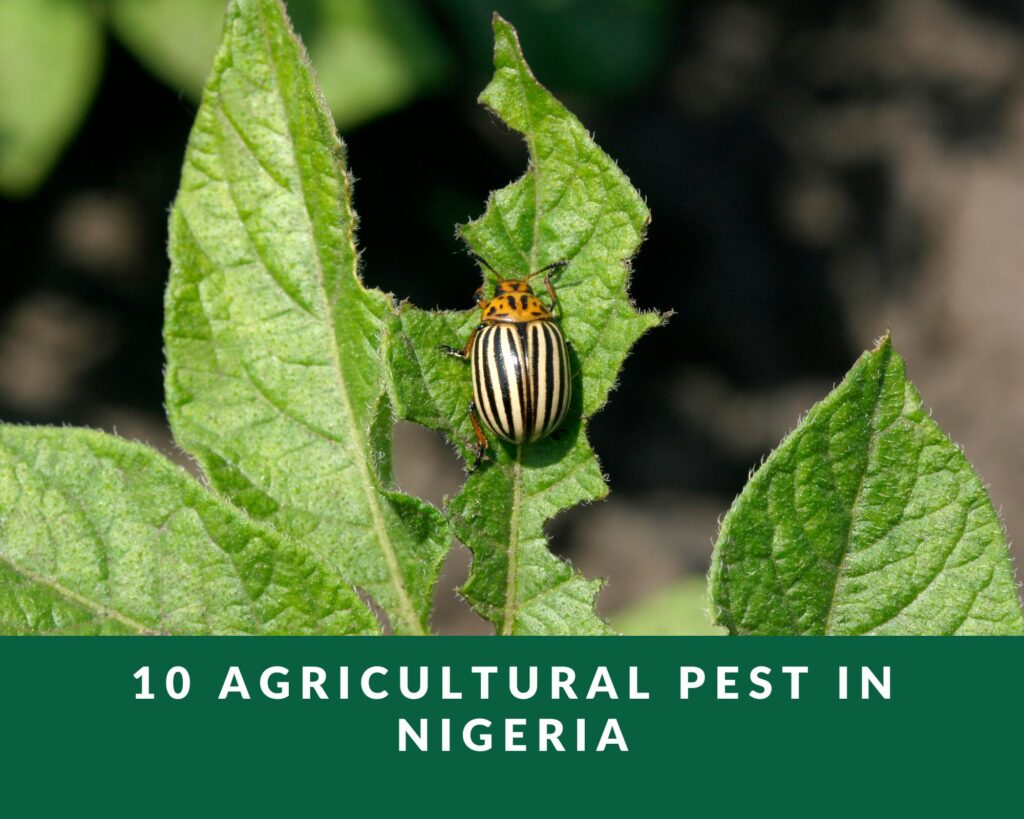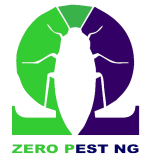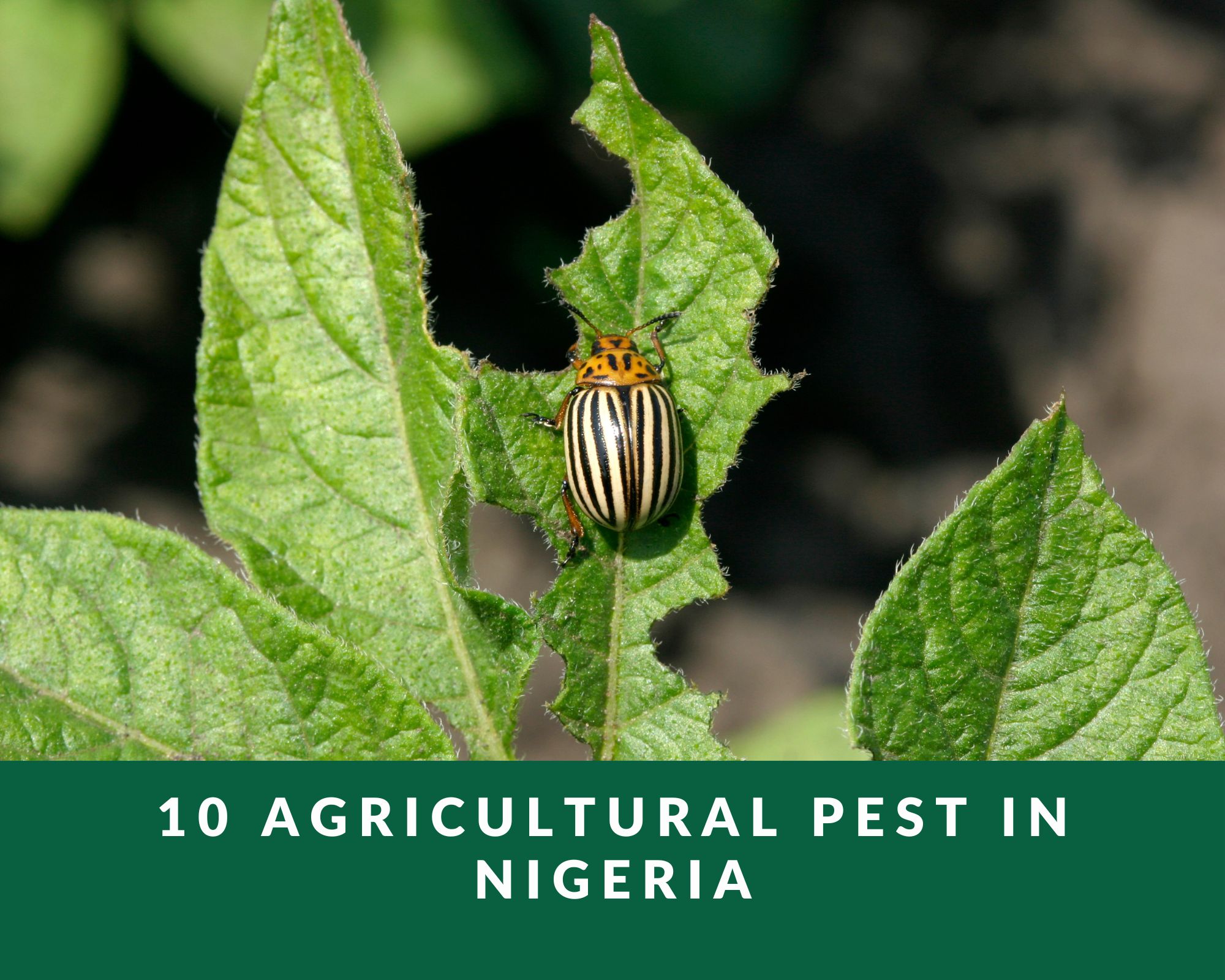List 10 agricultural pest in Nigeria
Insect pests are one of the main causes of loss of crop production in Nigeria and so pest management is very important all around the world.
The agricultural sector in Nigeria is one of the booming sectors in the country. This sector accounts for about 24% of the country’s gross domestic profit and it provides the country with enough income.
Agriculture is one of the leading sectors, so anything there is a drop in the production of crops, it is felt all around the country.

As individuals, it would be best to be educated on the kind of pests that affect agriculture in Nigeria and the kind of crops they infect.
One of the major problems agricultural farmers face in Nigeria is dealing with pests and diseases. The country loses about 50% of its total crop production to the cost of damage by pests.
The Nigerian government has proceeded to take plant health seriously because the source of the country’s food is in serious danger.
Also, the remaining yield that was not damaged by pests completely loses its quality and this also leads to an increase in food prices.
What are agricultural pests?
Plants are constantly under attack. They face threats ranging from microscopic fungi and bacteria, small herbivores, like aphids, caterpillars, and grasshoppers, up to large herbivores, like tortoises, koalas, and elephants.
All are looking to devour plants to access the plentiful nutrients and water in their leaves, stems, fruits, and seeds.
But plants are ready with a whole series of internal and external defenses that make them a much less appealing meal, or even a deadly one.
But what are these pests?
What are crop pests
Any organism that is known to cause damage to animals, agricultural plants, people, and their goods economically can be referred to as a pest.
These organisms can be either a plant or an animal. Both crops in the shop and in the field are attacked by them. Direct damage or disease introduction may occur to crops as a result.
There are various types of crop pests; these crop pests can cause defoliation and necrosis of the leaf tissue if not managed.
Good ways to control crop pests
There are a number of good ways to control crop pests, ranging from cultural methods to chemical treatments. How does a natural ecosystem control agricultural pests? Here are some of the most common methods:
- Crop rotation: As pests frequently have a predisposition for particular plants, this entails planting various crops in a single field each year.
- Biological control: To manage pest populations, this strategy makes use of organic predators, parasites, or diseases. For example, ladybugs can be released to control aphids.
- Chemical control: This involves using pesticides to kill or repel pests. However, this should be used carefully as it can harm beneficial insects, and can also lead to pesticide resistance.
- Physical barriers: This is the use of physical barriers like nets or fences to prevent pests from accessing crops.
- Integrated Pest Management (IPM): In a coordinated and sustainable manner, this holistic strategy incorporates several pest control techniques.
Ultimately, the most effective pest control methods will depend on the specific pest and the crop being grown. It’s important to consult with agricultural experts to determine the best approach for a given situation.
10 Agricultural pest in Nigeria
Pest management is very important for farmers, as it helps get rid of insect pests. Knowing the kind of pests that would most likely affect your crop is very important information.
Here’s a list of agricultural pest in Nigeria and their natural enemies.
- Bean weevil
- Beetle
- Red-eyed turtle dove
- Rats
- Termites
- Grasshoppers
- Locust
- Caterpillar
- Mites
- Ticks
Bean Weevil
The popular bean weevils are not actually weevils but a type of beetle. They do not possess the snout of actual weevils.
They are known as bean weevils because the crop they infest is usually seeded crops and beans.
Usually, bean weevils can live their entire lives in a single seed and they can live anywhere in the world except where it is very cold like Antarctica.
The female weevils, on the other hand, do not feed on beans, instead, they put their eggs on seeds and leave them to grow and multiply all around.
This is one of the major pests that attack the bean crops in the country.
Crops they attack – Beans, maize, rice, cowpea, etc.
Beetle
Beetles are one pest that is very common on Nigerian farmlands and they cause considerable damage to farm crops.
They have hard outer wings and are very sturdy pests because of their strong and armored appearance.
They cause damage to crops by chewing holes into plant parts. Beetles feed and lay eggs on crops and then keep feeding.
There are different types like the ones that feed on store produce (larder beetles, red flour beetles, cigarette beetles), wood destroyers (long-horned beetles, anobiid powderpost beetles), carpet infesters (black carpet beetles, common carpet beetles), etc.
Crops they attack – Broccoli, kale, cabbage, potatoes, tomatoes, eggplants, etc.
Red-eyed Turtle Dove
This is one of the few pests on the list that is not an insect pest. They feed on a wide array of crops on the farmland and cause major destruction.
It is found in most states in the country and since they feed on a lot of common crops grown here, they are usually a menace that should be gotten rid of.
Crops they attack – Rice, maize, sorghum, millet, cowpea, etc.
Rats
Rats are one of the most troublesome and annoying rodents in Nigeria. They are everywhere like in homes, most buildings even on farmland.
They eat most food and also contaminate them. Not only do they feed on crops on the farmland, but they also damage belongings and transmit diseases to farm animals.
It can be gotten rid of by poisoning grains and leaving them in wait for the rate or setting traps around the farmland.
Crops they attack – Wheat, sorghum, rice, groundnut, tuber crops, etc.
Termites
Termites are tiny insects that travel in a pack and live in colonies like ants. They are silent insects and can feed on crops and woods without being detected.
Some species of termite help to improve soil fertility and crop yield, but other forms cause major losses in farmlands.
Crops they attack – Palm, camphor tree, cotton, sugarcane, millet, etc.
Grasshoppers
Another common fast pest in Nigeria is grasshoppers. It is a hazard to most farmlands in the country and farmers have always looked for ways to get rid of them.
They consume and clip the forage they eat, which is usually ripening or mature crops.
Crops they attack – Cassava, soybeans, corn, wheat, etc.
Locusts
Locusts are one of the oldest pests in the world, and they are known for their popular migration system.
They have caused havoc on so many farmlands in Nigeria and continue to cause havoc.
It is the most destructive pest in subsistence farming in Africa.
Crops they attack – Cotton, corn, peanuts, citrus, etc.
Caterpillar
Although they can be good pollinators for plants, caterpillars also cause significant damage to fruits and vegetable plants.
They thrive well in Nigeria because it is a very hot country which is perfect for caterpillars to live in.
Crops they attack – Leafy vegetables, tomatoes, potatoes beans, etc.
Mites
These are very tiny pests that feed on the sap of plants, dry them up and they end up dying.
If the plants they feed on don’t end up dying, they produce less and have stunted growth.
This causes a reduction in yield.
Crops they attack – Tomatoes, eggplants, potatoes, cucumbers, etc.
Ticks
These pests commonly attack farm animals as they suck the animal and drain them of blood. It causes stress, weakness, and sickness to farm animals.
Continuous sucking of the blood of animals leads to death.
What they attack – Cattle, horses, pigs, etc.
Summing up on agricultural pest in Nigeria
Some agricultural pest in Nigeria has been discussed above.
There are a plethora of methods that can be used to control pests on the farmland. These pests can be controlled depending on the kind of crops they infest.


Many thanks for an explanation, now I will not commit such error.